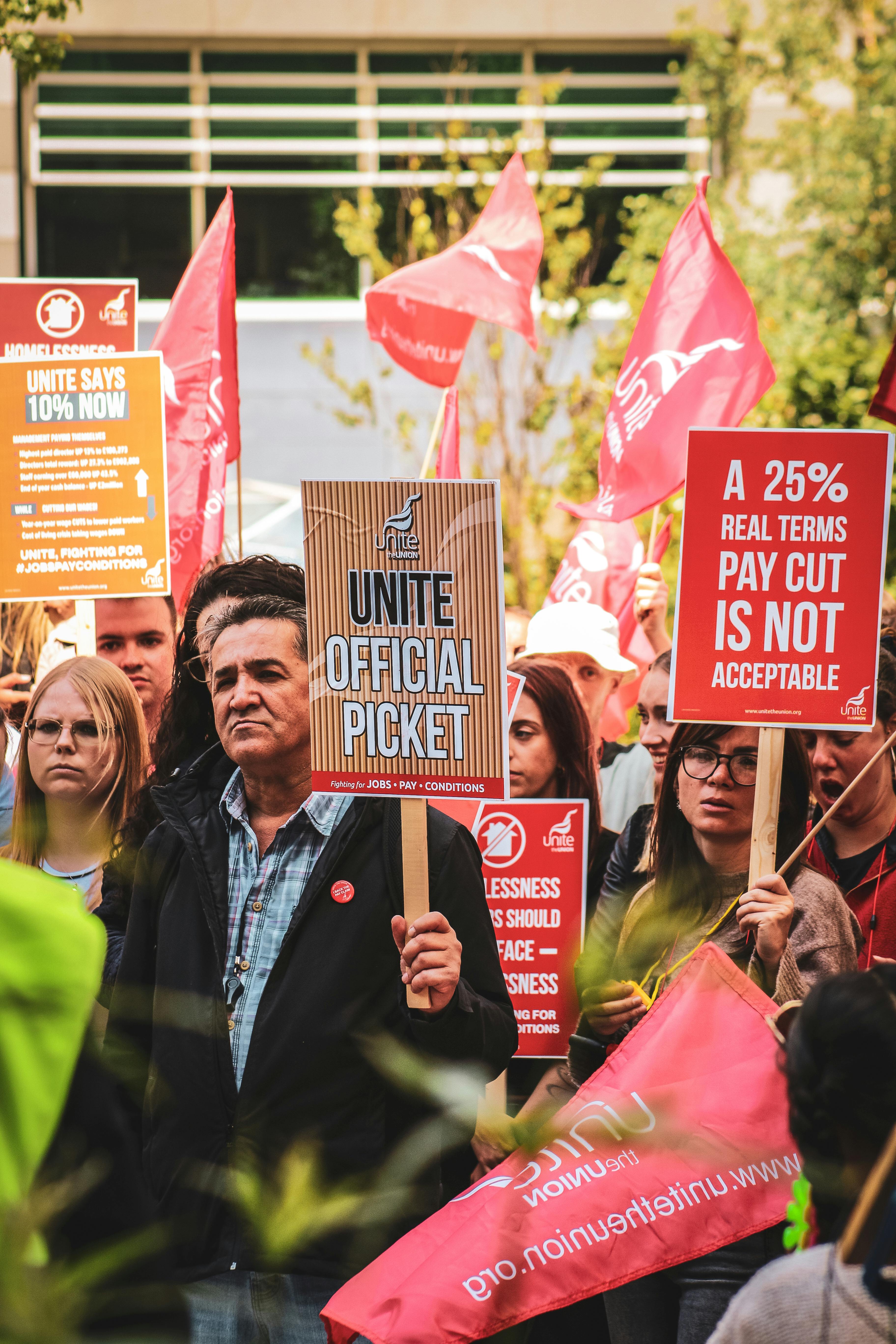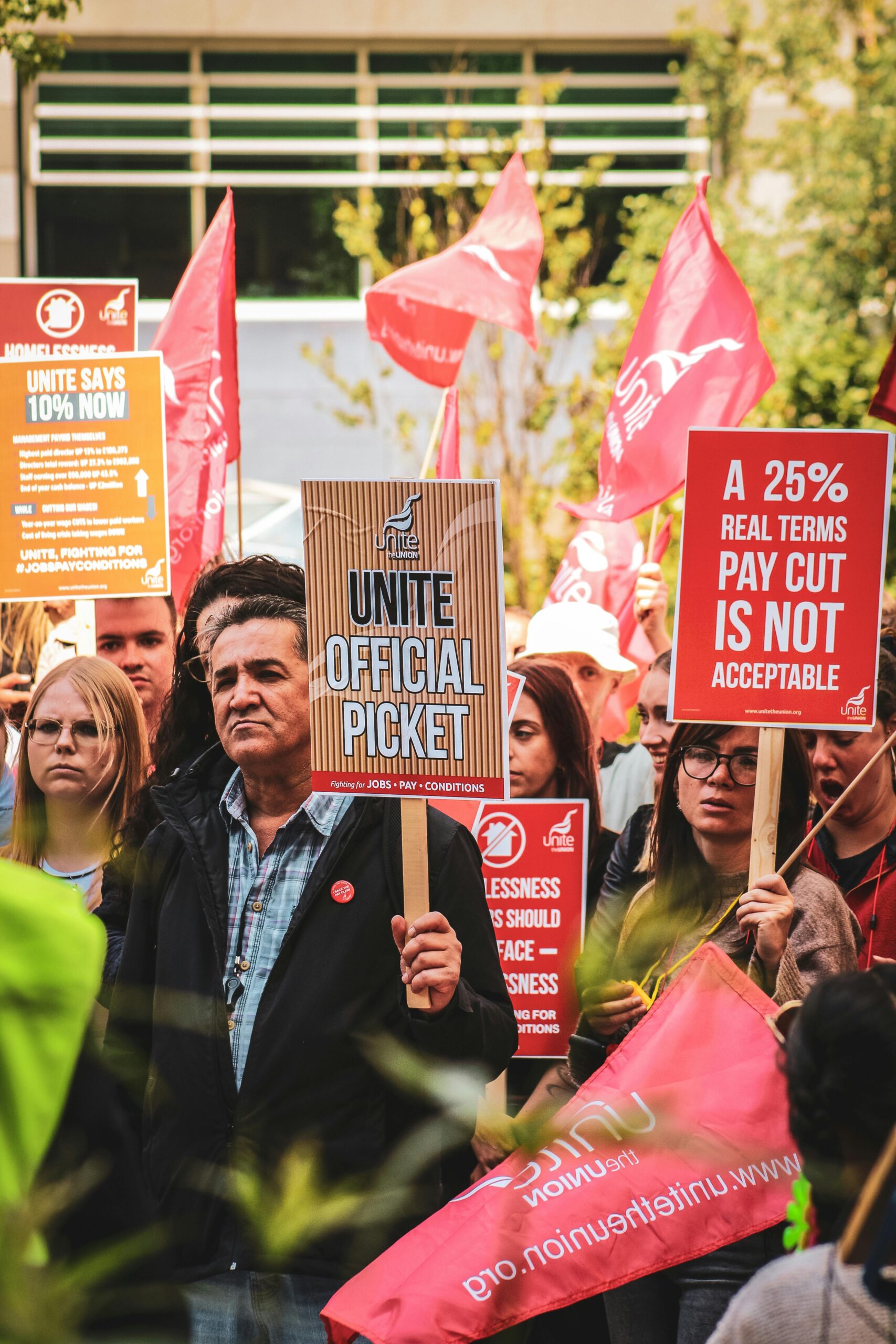Question:
Can Fi-Core Actors Work During a Strike?
(By Jim Webb)
 (Photo: Tony Zohari | Pexels)
(Photo: Tony Zohari | Pexels)
RELATED:
What does it mean to go Fi-Core as an actor?
Can Fi-Core actors work during a strike?
Who are the most famous Fi-Core actors?
What are the pros and cons of being a Fi-Core actor?
How does an actor become a Fi-Core?
Why are Fi-Core actors called scabs?
During a strike, union members are prohibited from working on any projects that fall under the union’s jurisdiction. But can Fi-Core actors work during a strike?
The short answer is yes—Fi-Core actors can technically work during a strike, but it comes with important considerations and potential consequences.
Fi-Core, or Financial Core, is a legal status that allows union members to opt out of full membership while retaining certain benefits, like health and pension. Fi-Core actors pay reduced union dues and still benefit from union-negotiated contracts, but they lose voting rights and the ability to participate fully in union activities. This also means they are allowed to work both union and non-union jobs without facing penalties from the union.
Why Fi-Core Actors Can Work During a Strike
When a union strikes, it typically only affects full members of the union. Fi-Core actors, on the other hand, are not bound by all the rules and obligations of full union membership. Because they’ve given up their voting rights and some union privileges, they are not required to follow the strike guidelines in the same way that full members are. This means that during a SAG-AFTRA strike, for example, Fi-Core actors are legally allowed to work on union and non-union projects, even if those projects are affected by the strike.
Fi-Core and Union Strikes
Since Fi-Core actors are not full members of the union, they are not bound by union solidarity in the same way as full members. This creates a legal loophole where Fi-Core actors are free to work during a strike without facing any direct repercussions from the union. However, this decision is highly controversial.
By working during a strike, Fi-Core actors could be perceived as “crossing the picket line” or undermining the union’s bargaining power. Strikes are meant to show the industry that actors are united in their demands for better wages, working conditions, or other terms. When Fi-Core actors continue to work, it can weaken the union’s leverage in negotiations, potentially prolonging the strike or diluting its effectiveness.
Potential Backlash
While Fi-Core actors are legally permitted to work during a strike, doing so can carry significant professional risks, especially in terms of reputation. Many actors, directors, producers, and other industry professionals are highly supportive of union efforts and value solidarity during strikes. If a Fi-Core actor chooses to work during a strike, they may face backlash from their peers, who view them as undermining the cause.
Fi-Core actors who work during strikes might:
Be labeled as “scabs”: In labor disputes, a “scab” is someone who works despite a strike, and this label carries a strong negative connotation. In the entertainment industry, being seen as a scab could harm an actor’s relationships with their peers and future collaborators.
Damage their reputation: Even after a strike ends, actors who crossed the picket line by working during the strike may face long-term reputational damage. Casting directors, producers, and fellow actors may be less inclined to work with someone who didn’t show solidarity with the union.
Lose future opportunities: Some projects, especially union-driven ones, might be hesitant to hire actors who worked during a strike. The entertainment industry is highly collaborative, and trust between actors and union supporters is crucial.
Union Responses to Fi-Core Actors During a Strike
While Fi-Core actors cannot be expelled from the union (because they’ve already opted for partial status), the union can publicly criticize or denounce their actions. SAG-AFTRA and other unions have a vested interest in maintaining solidarity during strikes, and they may issue public statements or circulate lists of actors who worked during the strike to draw attention to the issue.
Though Fi-Core actors retain some legal protection, they could become the target of negative press or be ostracized by the broader industry, which can affect their career in the long term.




